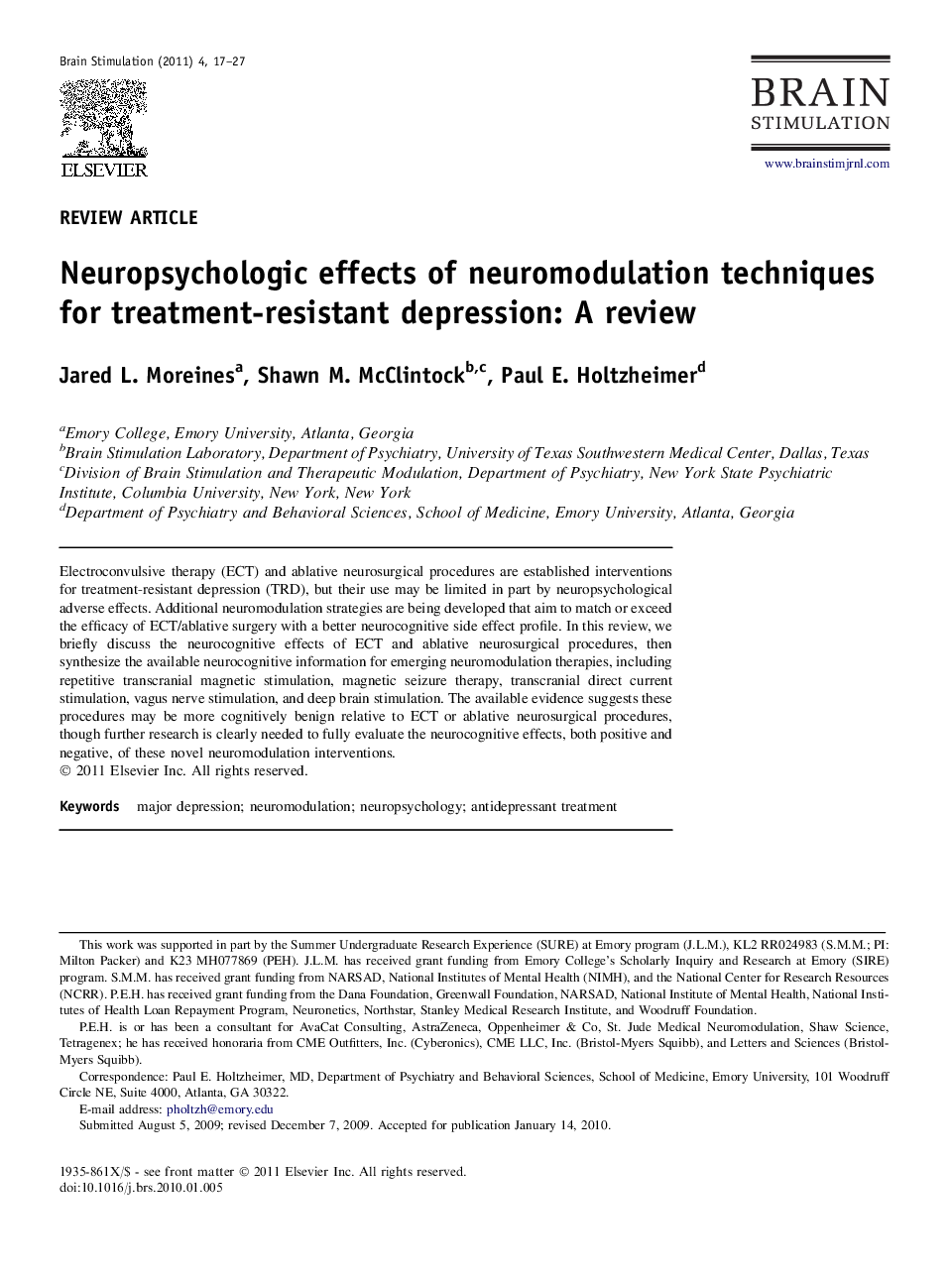| Article ID | Journal | Published Year | Pages | File Type |
|---|---|---|---|---|
| 3039053 | Brain Stimulation | 2011 | 11 Pages |
Electroconvulsive therapy (ECT) and ablative neurosurgical procedures are established interventions for treatment-resistant depression (TRD), but their use may be limited in part by neuropsychological adverse effects. Additional neuromodulation strategies are being developed that aim to match or exceed the efficacy of ECT/ablative surgery with a better neurocognitive side effect profile. In this review, we briefly discuss the neurocognitive effects of ECT and ablative neurosurgical procedures, then synthesize the available neurocognitive information for emerging neuromodulation therapies, including repetitive transcranial magnetic stimulation, magnetic seizure therapy, transcranial direct current stimulation, vagus nerve stimulation, and deep brain stimulation. The available evidence suggests these procedures may be more cognitively benign relative to ECT or ablative neurosurgical procedures, though further research is clearly needed to fully evaluate the neurocognitive effects, both positive and negative, of these novel neuromodulation interventions.
